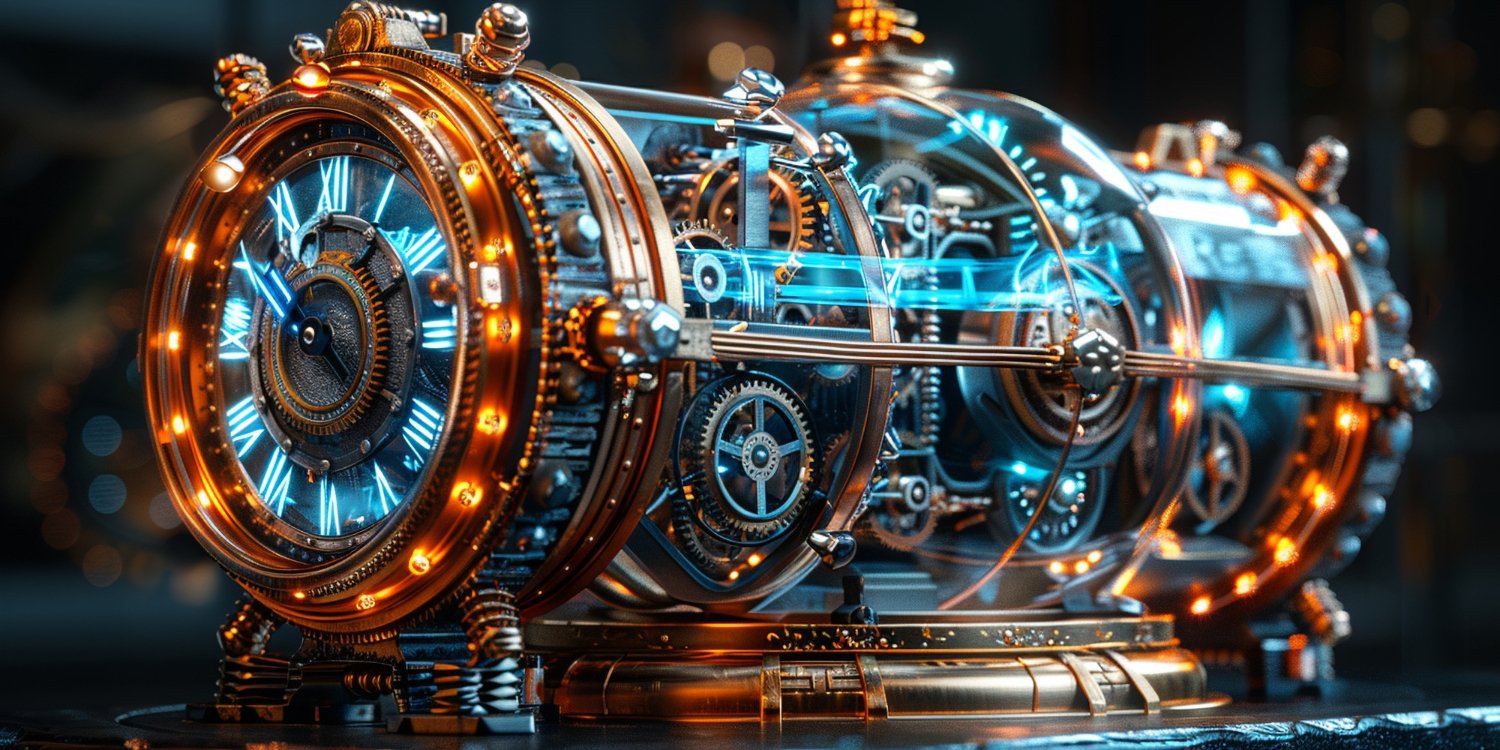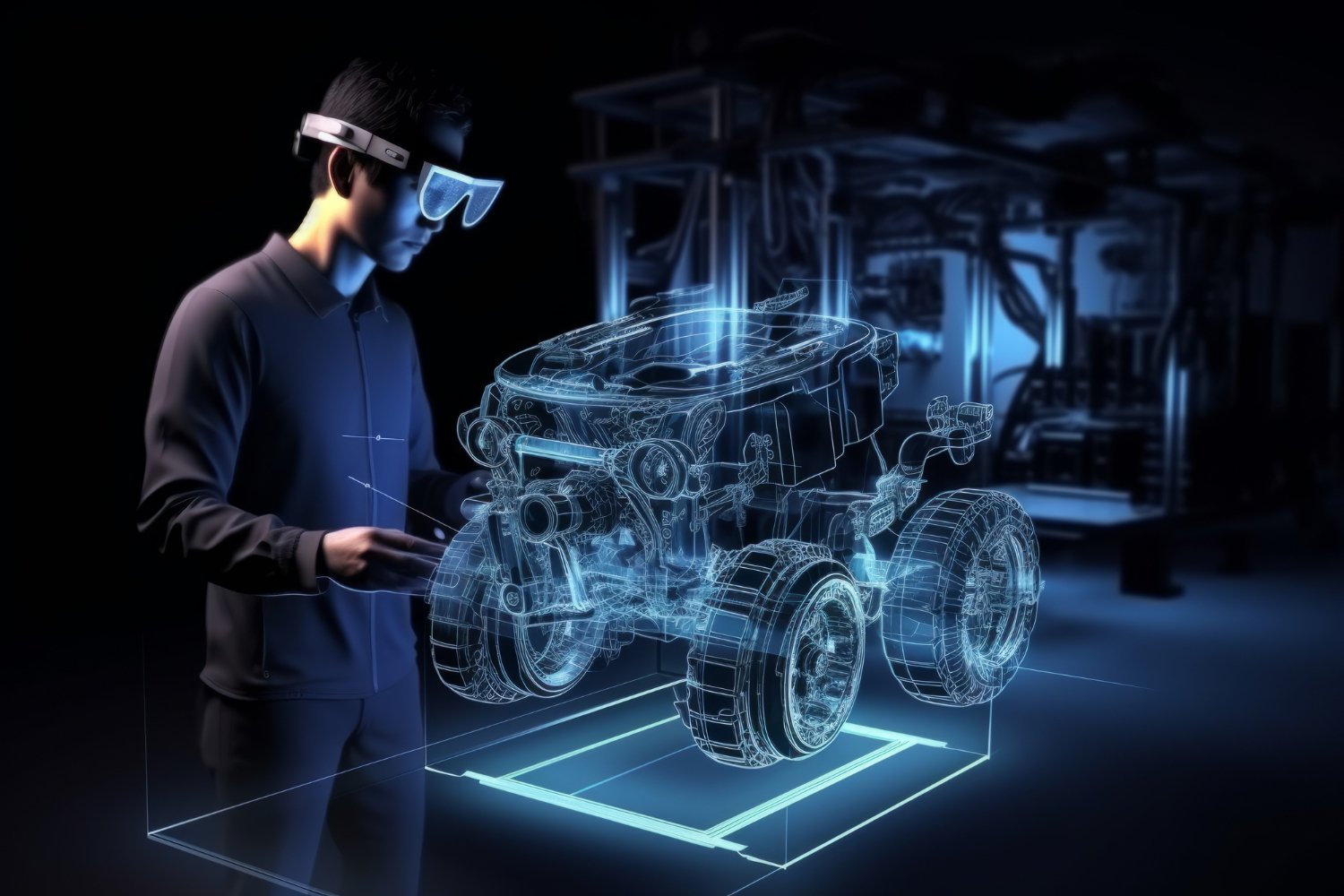
Tech Innovation
Understanding Shape Memory Alloys (SMAs)
Shape memory alloys are a class of materials known for their ability to return to a predetermined shape or size when subjected to specific stimuli, such as temperature variations. This unique property makes SMAs particularly suited for applications where precise control and adaptability are crucial, including the intricate workings of gear systems.
Integration of SMAs in Gear Systems
In recent years, researchers and engineers have explored the integration of SMAs into various types of gears across different industries. SMAs can be incorporated into gear teeth or structural components to enhance performance metrics such as durability, efficiency, and reliability. The ability of SMAs to change shape under varying thermal conditions allows gears to operate smoothly even in fluctuating environments, minimizing wear and optimizing transmission efficiency.
Advantages of SMAs Over Traditional Materials
Compared to conventional materials like steel or aluminium alloys, SMAs offer several distinct advantages in gear technology:
Adaptability: SMAs can adjust their shape to maintain optimal meshing conditions between gear teeth. This adaptability helps in reducing stress concentrations, minimizing friction, and wear over time. By maintaining precise contact surfaces, SMAs contribute to smoother gear operation and prolonged durability.
Precision: The precise shape recovery and movement control capabilities of SMAs are pivotal in applications requiring high accuracy, such as robotics and precision machinery. In gear systems, precise positioning ensures efficient power transmission and reduces the likelihood of misalignment or gear slippage.
Fatigue Resistance: One of the standout features of SMAs is their superior fatigue resistance compared to traditional materials like steel or aluminium alloys. This property allows SMA-integrated gears to withstand prolonged cyclic loading conditions without experiencing mechanical failure or performance degradation, thereby extending the overall lifespan of gear systems.
Weight Reduction: In industries where weight savings are crucial, such as aerospace and automotive sectors, SMAs offer significant advantages. Their high strength-to-weight ratio enables designers to achieve weight reduction goals without compromising on structural integrity or performance. This attribute is particularly advantageous in applications where minimizing weight contributes to improved fuel efficiency, manoeuvrability, or payload capacity.
Noise Reduction: SMAs contribute to quieter gear operation by damping vibrations and reducing noise levels during gear engagement. The inherent damping properties of SMAs help in absorbing mechanical vibrations, resulting in smoother gear transitions and enhanced user comfort. This noise reduction capability is particularly beneficial in consumer electronics, automotive transmissions, and other noise-sensitive applications.
Engineering Challenges in SMA Integration
Despite their promising benefits, integrating SMAs into gear systems presents several engineering challenges that must be carefully addressed:
Manufacturing Complexity: Fabricating complex SMA components with consistent mechanical properties can be technically demanding. Achieving precise shape memory characteristics and super elastic behaviour often requires advanced manufacturing techniques such as controlled heat treatments, alloy composition adjustments, and specialized machining processes.
Stability and Reliability: Ensuring stable performance of SMA-integrated gear systems over extended operational periods and under varying environmental conditions requires thorough testing and validation. Engineers must assess factors like material compatibility, thermal stability, and long-term durability to mitigate risks of unexpected shape changes or mechanical failures.
Cost Considerations: SMAs can be more expensive than traditional materials due to their specialized manufacturing processes and unique alloy compositions. While the initial material costs may be higher, advancements in production techniques and economies of scale are gradually reducing overall costs, making SMAs more economically viable for certain applications.
Compatibility: Integrating SMAs with existing gear designs and materials may necessitate redesigning or retrofitting gear assemblies. Ensuring seamless compatibility involves considering factors such as dimensional tolerances, material properties, and operational requirements to optimize performance and reliability.
Temperature Management: Effective thermal management strategies are essential to optimize SMA performance and prevent unintended shape changes. Temperature fluctuations can influence SMA behaviour, affecting shape memory properties and superplastic responses. Implementing thermal insulation, cooling systems, or temperature monitoring technologies helps maintain consistent operating conditions and ensures reliable gear performance.
Applications of SMAs in Gear Technology
SMAs find applications across diverse industries where precise motion control and durability are paramount:
Applications of SMAs in Gear Technology
Automotive Sector:
In the automotive industry, the integration of shape memory alloys (SMAs) in transmissions represents a significant advancement in improving gear shifting precision and efficiency. SMAs can be employed in automatic transmissions to optimize gear engagement and shift timing, resulting in smoother and quicker gear changes.
The unique ability of SMAs to adjust their shape in response to temperature changes ensures consistent performance across a wide range of operating conditions. This adaptability not only enhances driving comfort but also contributes to improved fuel efficiency by minimizing energy losses during gear transitions.

Moreover, SMA-integrated gears exhibit reduced friction and wear, leading to longer-lasting components and lower maintenance costs for vehicle owners. As automotive manufacturers continue to prioritize sustainability and performance, SMAs offer a promising solution to enhance transmission systems’ reliability and operational efficiency.
Aerospace Industry:
In the aerospace sector, gears used in aircraft and spacecraft must withstand extreme environmental conditions while maintaining optimal performance and reliability. Shape memory alloys (SMAs) play a crucial role in enhancing gear functionality due to their lightweight properties and exceptional durability. SMAs are particularly advantageous in aerospace applications where weight reduction is critical for improving fuel efficiency and payload capacity.
By replacing traditional materials with SMAs in gear components, aerospace engineers can achieve significant weight savings without compromising structural integrity or operational safety. Furthermore, SMAs exhibit high fatigue resistance and corrosion resistance, making them ideal for gears operating in harsh environments such as high-altitude flights or space missions.
The reliability of SMA-integrated gears ensures smoother operation and reduces maintenance requirements, thereby enhancing the overall efficiency and longevity of aerospace systems.
Medical Devices:
Shape memory alloys (SMAs) are widely utilized in the field of medical devices, particularly in robotic surgery systems and prosthetic limbs, where precise movement control and adaptability are crucial.
SMA gears enable robotic surgical instruments to perform intricate procedures with enhanced accuracy and dexterity, mimicking the natural movements of human hands with minimal invasiveness. The biocompatibility of SMAs allows for seamless integration into medical implants and prosthetic devices, facilitating patient mobility and improving quality of life.
In prosthetics, SMA actuators provide adjustable force and movement capabilities, allowing users to perform daily activities more comfortably and efficiently. The use of SMAs in medical applications underscores their reliability and safety, ensuring precise motion control and responsive performance in critical healthcare settings.
Renewable Energy:
Shape memory alloys (SMAs) play a pivotal role in enhancing the efficiency and reliability of gearboxes used in renewable energy systems such as wind turbines and tidal generators. Gearboxes in these applications are subjected to varying loads and environmental conditions, requiring robust materials that can withstand operational stresses over extended periods.
SMAs offer significant advantages by improving energy conversion efficiency through precise gear engagement and reduced mechanical losses. The superelasticity of SMAs ensures optimal gear performance under fluctuating loads, enhancing overall system reliability and minimizing maintenance downtime.
Additionally, SMAs contribute to noise reduction and vibration damping in gearboxes, enhancing operational stability and reducing environmental impact. As renewable energy continues to expand globally, the integration of SMAs in gearbox technology represents a sustainable solution to optimize energy production and enhance system performance in wind and tidal power applications.
Consumer Electronics:
In consumer electronics, shape memory alloys (SMAs) are employed in small-scale mechanical components such as micro-gears and actuators to improve device functionality and user experience.
SMA actuators enable precise control and movement in devices like smartphones, cameras, and wearable technology, enhancing operational efficiency and user interaction. The responsive nature of SMAs allows for quick adjustments and stable performance in miniature mechanical systems, contributing to smoother operation and extended battery life.
Moreover, SMAs contribute to noise reduction by damping vibrations and minimizing mechanical noise during gear operation, ensuring quieter and more reliable consumer electronic devices. The integration of SMAs in consumer electronics underscores their versatility and reliability in optimizing mechanical components, enhancing device performance, and meeting the evolving demands of modern technology.
Future Trends and Innovations
Looking ahead, ongoing research aims to overcome current limitations and expand the application of SMAs in gear technology. Innovations in material science, manufacturing processes, and computational modeling are expected to further enhance SMA performance, reduce costs, and broaden their adoption across new industrial sectors.
Shape memory alloys represent a transformative advancement in gear technology, offering unparalleled adaptability, precision, and durability compared to traditional materials. While integrating SMAs poses engineering challenges, their potential to revolutionize gear design across various industries is undeniable. As research and development continue, SMAs are poised to play a pivotal role in shaping the future of gear technology.